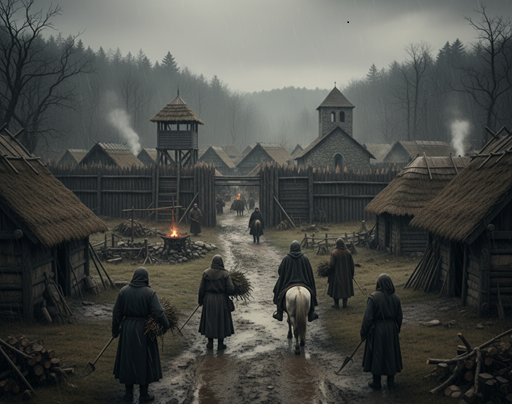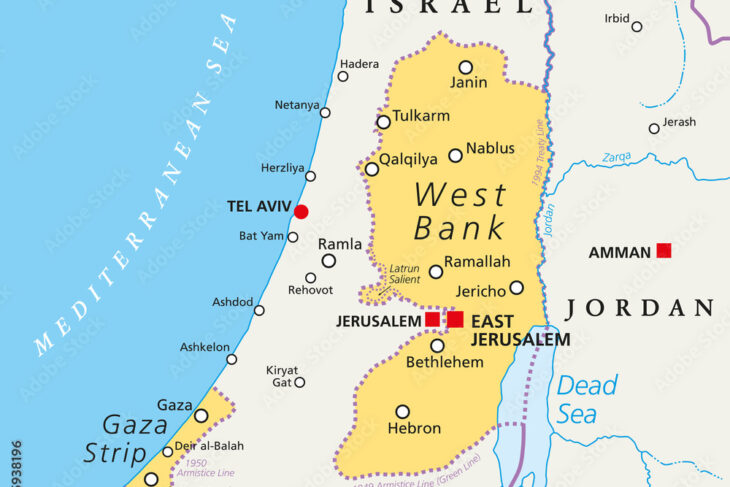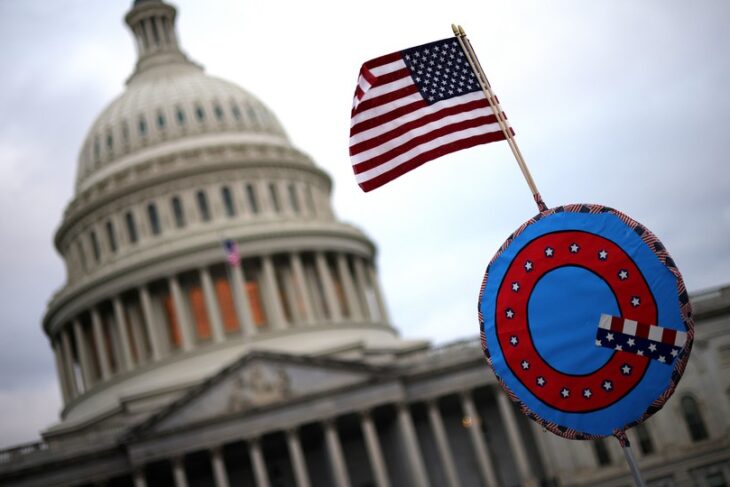
Historians tell us of the rising trajectory of increasing knowledge and of civilization that was Rome, before the barbaric peoples who the empire had under the heel of its iron boot, had mustered up enough strength and courage to revolt. Europe was then plunged into a very long period of social, cultural and political stagnation and decline. The glory of the so-called “Classical age” had gone dim, and those who lived in what some scholars later referred to as the Dark Ages — that period before the so-called Renaissance — had little to show from their Latin heritage.
Education, the arts and the finer things of culture — though absent from the common mundanity of the streets — were, amazingly, preserved in the secluded vaults of the religion of Roman Catholicism and that of the Muslim mosques and of the pillars of Arabic culture and of learning. All this transpired in Europe when education was not allowed to mate with ignorance, to make a seminal and global difference, that is, not until The Age of Reason.
It happened on the continent in ancient times, and in light of recent developments in the world, like for example with the anti-scholastic, anti-technocratic attitudes of many within the United States, I am beginning to wonder if it can happen again in our times.
As was stated before, with the fall of the Western Roman Empire, due to the successful revolts of its former subjugated peoples, the deadly wound was inflicted from without.
But, in another sense, there is also talk among academics of the fall of the empire coming due to forces from within, like, for example, that of corruption, which would explain its gaping, bloody wound as one that was self-inflicted. There is no doubt that real progress is achieved because of sound education. And history tells us, not only in respect to European but to African and other empires, that when libraries are destroyed and scholars are killed, imprisoned and led off into exile — recovery is not only difficult but, at times, also impossible.
It was HG Wells who said that “Civilization is a race between education and catastrophe.” This often-cited quotation frames education as humanity’s primary defence against its own potential for self-destruction. Will Durant, also stated that, “Education is the transmission of civilization.” Not to be outdone in his thoughts on this subject, diplomat and former UN Secretary General Kofi Annan said that, “Education is the premise of progress in every society, in every family.” Such expressions of some of the well-respected luminaries of our age serve as a distillation of thought within academia of the indispensable value of education.
In a paper that was published by the Thomas B Fordham Institute on December 19, 2024, titled, ‘The state of global education in a post-pandemic world’, it was stated that:
“The recently released results from Trends in International Mathematics and Science Study (TIMSS) 2023 highlight a concerning decline in US students’ performance in science and mathematics, with the country falling further behind peer countries. But it isn’t just America. The post-pandemic education landscape reveals a troubling decline in student performance globally, with critical gaps in core subjects.
In addition to TIMSS, this is borne out in international assessments such as the 2021 Progress in International Reading Literacy Study (PIRLS) and the 2022 Programme for International Student Assessment (PISA), which have tracked educational progress since the 1960s, providing crucial data for tracking trends and guiding policymaking. However, the latest results show concerning trends: 26 per cent of students are low performers in reading, 31 per cent in mathematics, and 25 per cent in science.
These numbers suggest that large numbers of students are not meeting even basic academic standards. While the pandemic exacerbated these challenges, many of these issues predate the pandemic. These results raise concerns about the long-term trajectory of global education.
And so, in light of those and other sources of data on the crisis in education, on a global scale, and in light of proactive and shortsighted moves, particularly in the United States, to attack, defund, depopulate, demoralize and place under strict political partisan control well-established, tried and proven educational institutions — which are on the cutting-edge of cultural, social, political, economic, scientific and technological advancements, again — I do wonder if we are on the cusp of another period akin to the Dark Ages. And, in light of these concerns, what are the prospects for a brighter future for countries across the world who adopt such a cynical, suspicious, backward and destructive approach to liberal education.
It is one thing for governments, which have a modicum of genuine concern for properly educating their people, to place their priorities elsewhere for different legitimate reasons, but it is another to deliberately work towards sabotaging such an effort, as in the United States.
Many societies, even with education being among those which are high on their list, are severely hampered by inadequate funding, by various kinds of conflict and emergencies, by inadequate resources, by extreme poverty and child labour, and by systemic prejudice and discrimination. Although governments often expect much from their educational systems, the irony is that not enough is invested in them in order to achieve desired results.
The matter of this slow decline, perhaps, into a new iteration of The Dark Ages, is not purely academic for me, and it is not just about the future of our children, but about the advancement and the security of humanity as a whole. Dr Martin Luther King, Jr was right when he had said: “We are caught in an inescapable network of mutuality, tied in a single garment of destiny. Whatever affects one directly, affects all indirectly.”
I fear political instability. I fear increased poverty and famine. I fear more diseases and low life expectancy. I fear increased superstition and deadly conspiracy theories. I fear the tragic outcomes of historical bias. I fear misleading characterizations of citizens. I fear nihilism and I fear anarchy.
Although I thank my parents for ensuring that I was exposed to a good education — the fruits of which I have enjoyed from my youth to the present — I see the signs of erosion all around me and I feel the chill of its demise up and down my spine. It has been said that democracy can only survive and that it can only thrive with a well-educated populace. And, based upon my reading of history and of the social sciences I have come to believe that. But, I do not think many are heeding the lessons from history, and that scares me, that scares me — it really, really does.



